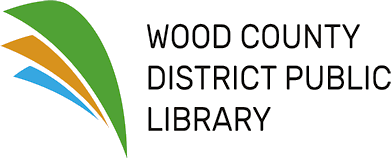Security Camera Policy
The library strives to maintain a safe environment for patrons and staff; the library is obligated to protect taxpayer-funded property. Therefore, select areas of the premises are equipped with video cameras that are recording at all times. The recordings are used to retrieve information on security-related events; they are not used for fun nor to watch people/events live.
The purpose of this policy is to establish rules for the use of security cameras, as well as access to recorded images. The library’s system shall only be used for the protection and safety of patrons, staff, assets, property, and to identify persons breaking the law or violating library policy, including the library’s Code of Conduct.
Reasonable efforts shall be made to safeguard the privacy of patrons and staff. Cameras may be installed in locations where patrons and staff would not have an expectation of privacy. Examples include, but are not limited to, common areas of the library such as entrances, near book and media collections, public service desks, exterior grounds and parking lots. Cameras are not installed in areas where patrons and staff have a reasonable expectation of privacy, such as inside restrooms, nor are they positioned with the intent to identify a person’s reading, viewing or listening activities in the library.
Only the following individuals are authorized to access the recorded data in pursuit of incidents of criminal activity, litigation, or violation of library policy: the Library Director, the Network Administrator (to administer the technological components of the system), and the Deputy Director when the Library Director is unable to be contacted in a timely manner.
Video records may be used to identify the person(s) responsible for library policy violations, criminal activity on library property, or actions disruptive to library operations and to facilitate future improvements to library security. The Director may share video records with library staff to identify person(s) involved in an incident. The Director may use a still shot or selected portions of recorded data to request law enforcement review for assessing the security risk of a specific individual or for investigating a crime on library property.
Video records shall not be used or disclosed other than as specifically authorized by this policy.
Security records are exempt from the Ohio Public Records Act, except in limited circumstances related to law enforcement or legal proceedings. All requests for security camera footage or still shots by law enforcement are referred to the Library Director. The library will comply with a court order/search warrant in a timely fashion.
Confidentiality laws prohibit the public from viewing security camera footage that contains patron information. Video records may contain personally identifiable information about an individual who has used any library service or borrowed any library materials (“patron information”), and will be accorded the same level of confidentiality and protection provided to library users by Ohio state law (ORC §149.432, “Releasing Library Records or Patron Information”).
Security camera footage will be kept confidential and is password protected. Recordings are kept for 30 days, unless required as part of an ongoing investigation or litigation.
A breach of this Policy may result in disciplinary action up to and including dismissal. Any library employee who becomes aware of any unauthorized disclosure of a video record and/or a potential privacy breach has a responsibility to ensure that the Director is immediately informed of the incident.
Adopted by the Board, October 17, 2022
